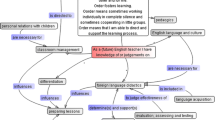Abstract
This paper describes a study of the nature of knowledge structures held by six first year undergraduates in a branch of engineering. Their knowledge structures were defined using the construction of concept maps as an exploration mechanism. A third year undergraduate and a member of staff also provided concept maps from which their knowledge structures could be defined. Comparing the outcome from this study with other studies, a further dimension is apparent. The aspect of confidence was identified that relates to the affective domain. Confidence in a knowledge structure is based on a (valid) personal system of models, experiences and datum ‘values’ which are found in reality. The inclusion of models, experiences and values in a knowledge structure leads to a more comprehensive understanding of how individuals handle problems. The study reported here is deeper than those which have been reported in the referenced literature.
In relation to first year undergraduate engineers it appears: experience is limited; no datum values form a part of their knowledge structures as defined; models are at a simple level. Whether this is appropriate for first year undergraduates is not the issue of this paper, but certainly the difference in knowledge structures between teachers and students may give rise to problems as the two are at different levels and have different included elements.
Similar content being viewed by others
References
AusubelD. P., NovakJ. S., and HanesianH. (1978). Educational Psychology: A cognitive view. (2nd edition), New York: Hold and Rinehart and Winston
ChampagneA. B., GunstoneR. F., and KlopferL. E. (1983). Naive knowledge and science learning, Research in Science and Technological Education 1, (2), 173–183
Dahlgren, L. O. (1979). Childrens conceptions of price as a function of questions asked. Report from the Institute of Education, University of Goteborg, No. 81. Sweden
DriverR. (1981). Pupils alternative framework in science, European Journal of Science Education, 3, (1), 93–101
Driver, R. (1973). The representation of conceptual framework in young adolescent science students, Ph.D. thesis. Illinois: University of Illinois, Urbana
EntwistleN. J. (1978). Knowledge structures and styles of learning: a summary Pask's recent research. British Journal of Educational Psychology, 44, 255–265
EntwistleN. J. (1981). Styles of learning and teaching: an integrated outline of educational psychology for students, teachers and lecturers. Wiley, Chichaster
GilbertJ. K., WattsD. M., and OsborneR. J. (1982). Student conception of ideas in mechanics. Physics Education, 17, (2), 62–66
MoreiraM. (1985). Concept mapping: an alternative strategy for evaluation. Assessment and Evaluation in Higher Education, 10, (2), 159–168
NovakJ. D., GowinD. J., and JohansenG. T. (1983). The use of concept mapping in knowledge via mapping with junior high school science students. Science Education, 67, 625–645
NussbaumJ., and NovakJ. D. (1976) An assessment of children's concepts of the earths utilisation structured interviews, Science Education., 60, (4), 535–550
OsborneR. J., BallB. F., GilbertJ. K. (1983). Science teaching and childrens view of the world, European Journal of Science Education, 5, 1–14
PaskG. (1976). Conversational techniques in the study of practice of education, British Journal of Educational Psychology, 46, 12–25
PerryW. G. (1970). Forms of intellectual and ethical development in the college years; a scheme. New York: Holt, Rinehart and Winston
PhillipsJ. L. (1982). Do students think as we do? Progress with Piaget. Improving College and University Teaching, 30, (4), pp. 154–158
Svensson, L., and Hogfors, C. (1984). On science learning, 6th International Conference on Higher Education, University of Lancaster, Lancaster
Taylor, E. M. (1984). Understanding concepts in social science: a qualitative evaluation of students on two Open University foundation courses. 6th International Conference on Higher Education. University of Lancaster, Lancaster
ViennotL. (1979). Spontaneous reasoning in elementary dynamics, European Journal of Science Education, 1, 205–221
Author information
Authors and Affiliations
Rights and permissions
About this article
Cite this article
Fordyce, D. The nature of student learning in engineering. Int J Technol Des Educ 2, 22–40 (1992). https://doi.org/10.1007/BF00183778
Issue Date:
DOI: https://doi.org/10.1007/BF00183778




